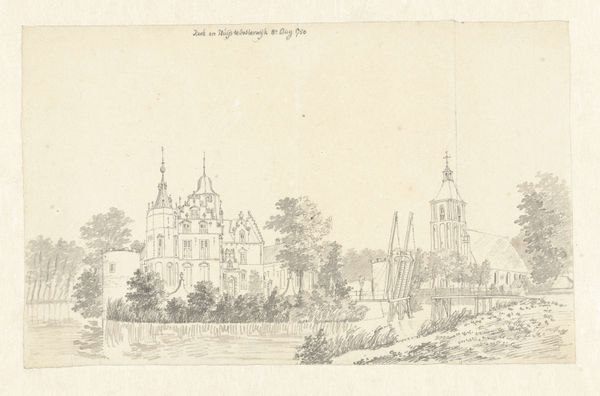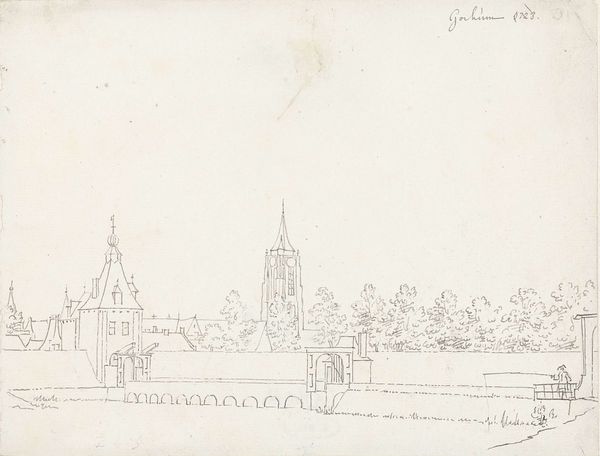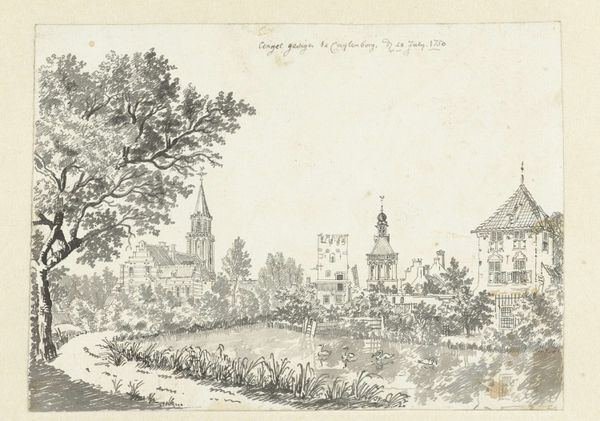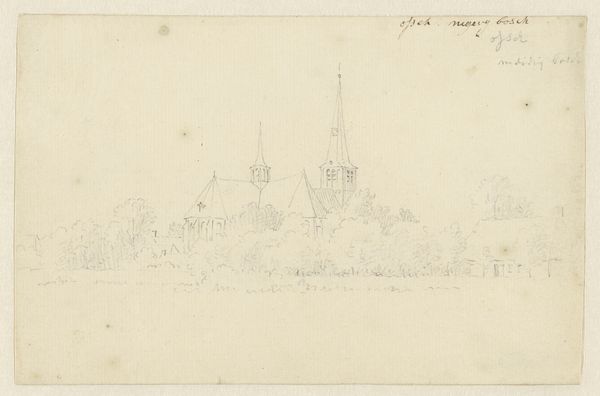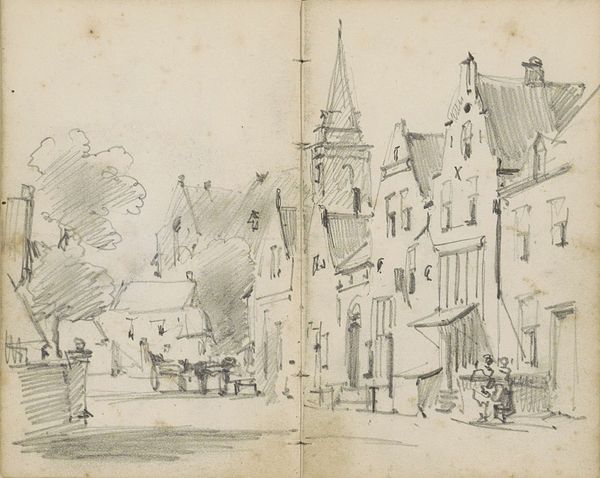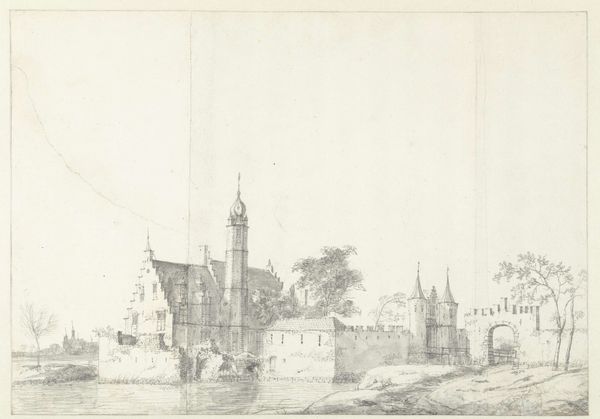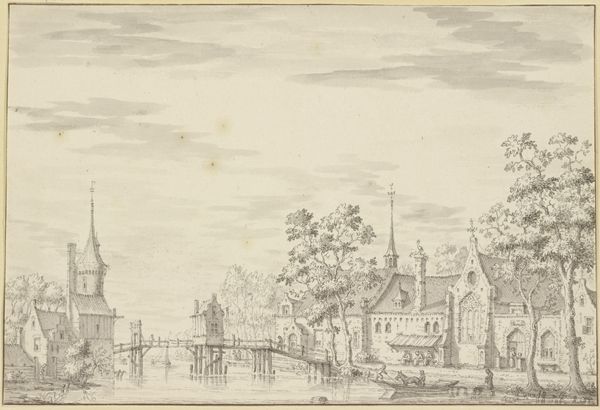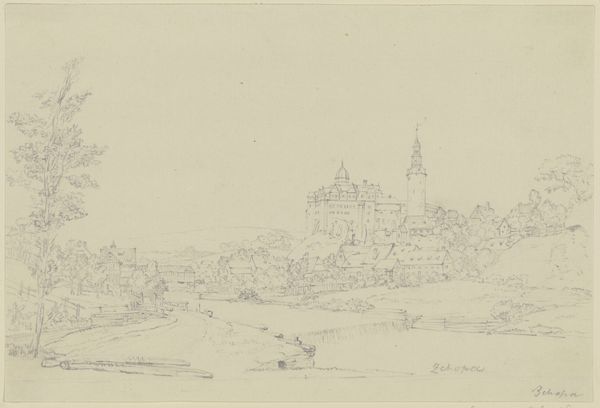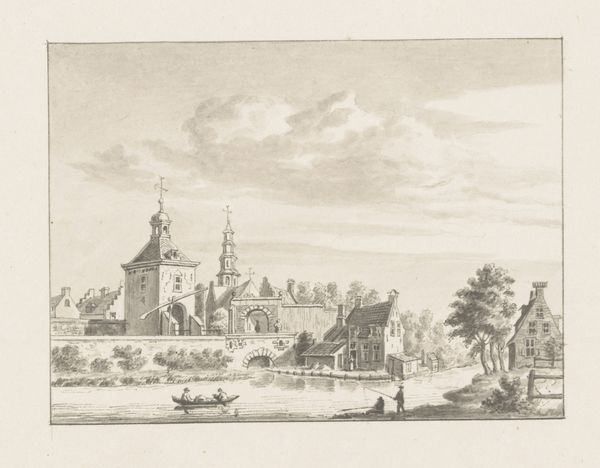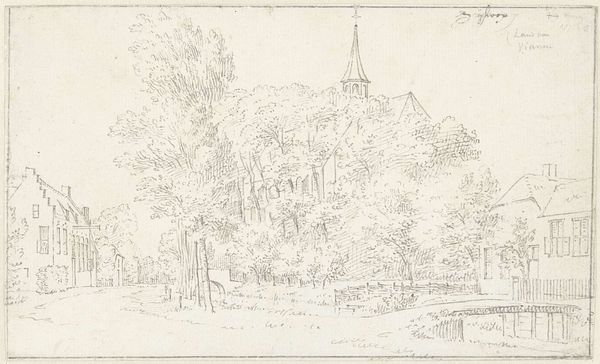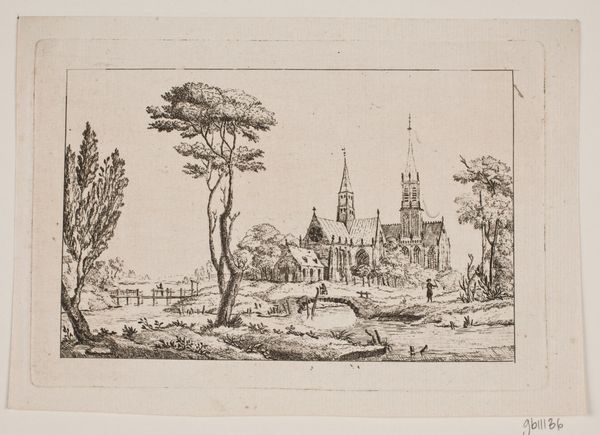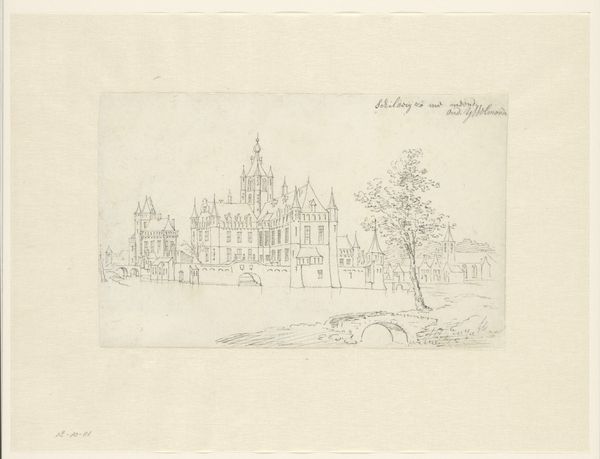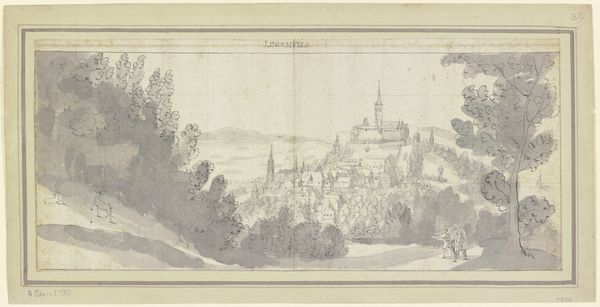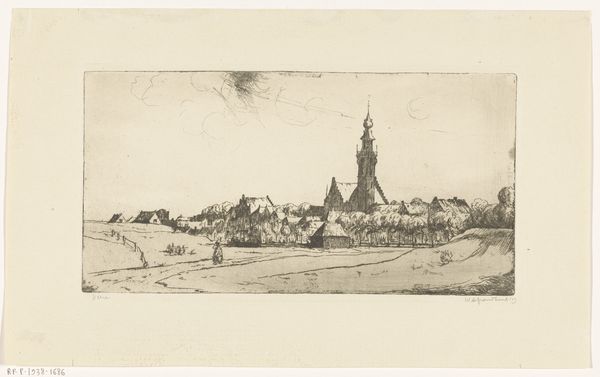
drawing, pen
#
drawing
#
quirky sketch
#
baroque
#
pen sketch
#
sketch book
#
landscape
#
personal sketchbook
#
sketchwork
#
pen-ink sketch
#
15_18th-century
#
pen work
#
sketchbook drawing
#
pen
#
cityscape
#
storyboard and sketchbook work
#
sketchbook art
Dimensions: height 183 mm, width 218 mm
Copyright: Rijks Museum: Open Domain
Jan de Beijer made this drawing of Culemborg with pen and brown ink in the 18th century. The image presents a panorama of the Dutch city from a slightly elevated perspective. In the Dutch Golden Age, topographical drawings like this one served a practical purpose: documenting the appearance of cities and landscapes for cartography and historical records. But they also reflect the cultural pride of a burgeoning mercantile empire. De Beijer’s style, with its meticulous detail and balanced composition, showcases a vision of civic order and prosperity. The choice of viewpoint, carefully framing the architecture amidst the natural landscape, subtly reinforces the harmony between human achievement and the environment. Understanding the social role of such images requires us to delve into archives and libraries. By looking at maps, civic records, and travelogues, we can decode the visual vocabulary and understand the values that shaped the image. What can art tell us about the relationship between power, representation, and social identity?
Comments
No comments
Be the first to comment and join the conversation on the ultimate creative platform.
